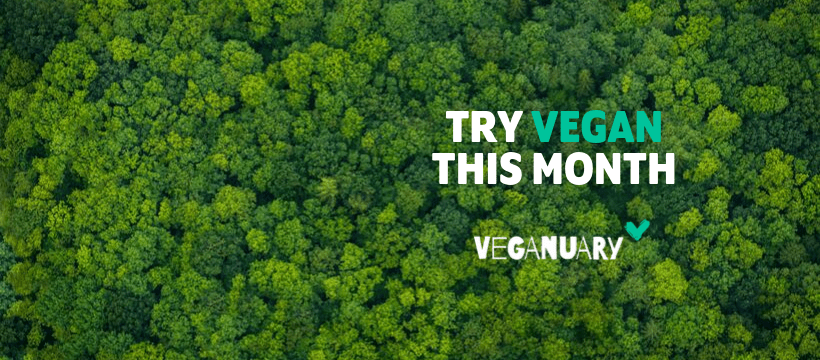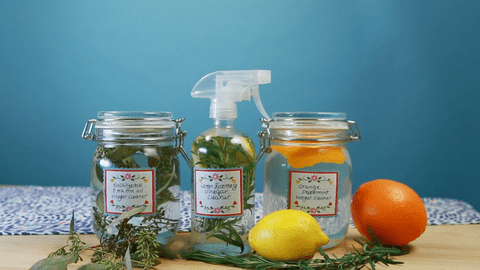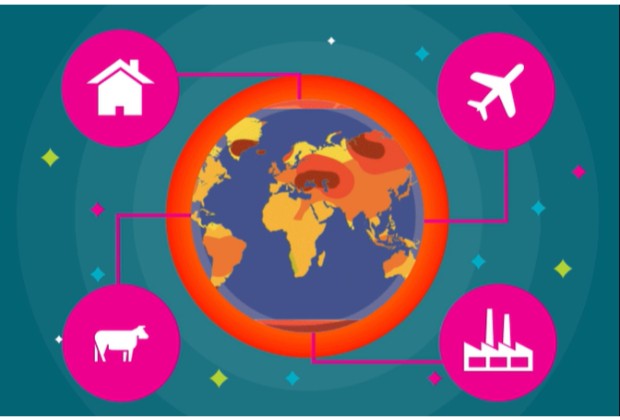Individual Planet Action; we are all super busy. With so much going on in our lives. We are rushing, planning, doing, and stressing about our lives, health, jobs, and more. So, thinking, caring, and doing for our planet and children's environment updates on the list. Keeps moving down in the priorities. What if we tackle just one little planet-friendly activity? One swop, one trip to the recycling bin, one change of item or product that will make the difference? Like Helene Keller said, " I am only one. But still, I am one. I cannot do everything, but still I can do something. Neither will I refuse to do something I can do." I personally detest the fake grass invention. Additionally, I have always liked, even as a child, sitting on the grass and watching LIFE go on in the micro world of insects and other little creatures. This fake grass kills life, is terrible for the ecosystem, and poisons the soil. It is hot to walk barefoot, and the list could go on. We are lucky to live in a tropical country where lush nature thrives in this hot and wet weather. We can encourage natural plants (even weeds are better than fake grass ). Recently in the vicinity, we saw a government entity spraying herbicide on the plants, grass, and weeds growing just outside their building. We spoke with them about this poison, for their and our health and the environment, for the attractiveness of the neighborhood, and for allowing nature to be controlled but not eliminated. Our explanations were welcomed by the person in charge and he thanked us and promised not to allow it to be done anymore. Speaking to others in enriching and rewarding for all. One can no longer hide from the fact that eating less or no meat is saving water, energy, and petrol, destruction of forests, and avoiding greenhouse effects. On a last little note, it can be overwhelming here's a little riddle to help you: Q: How do you eat an elephant? A: A mouthful at a time I sometimes used to (still do) feel quite guilty when I bought something I knew was not environmentally friendly. Then a friend said that we make so many efforts, that in a circumstance that is unavoidable. After we have done the refuse, reuse, rethink, repair, rot, recycle...there may be a tiny little one that does have to go to the bin, dumps, and pollution.
The stronger the detergent, the cleaner the house, or so we believe. Your favorite commercial cleaner that seems to make cleaning easier, unfortunately, is loaded with toxic and polluting substances. As much as such cleaners do a good job to keep your home clean, the chemicals used to make them leave a devastating impact not only on the environment but your family too. Fortunately, there are green cleaning products available that do as good a job but without affecting you, your family, and the environment. Most of these products are made by brands that are committed to protecting the environment so they use biodegradable ingredients, or produce products using safe and sustainable farming techniques. With such products, you can practice green cleaning at home. Green cleaning essentially involves cleaning using products and procedures that are safe for the environment. The products you use should not have toxic chemicals like phthalates, sulfates, ammonia, chlorine, sodium hydroxide artificial fragrances or artificial colors. Think natural ingredients such as lemons, vinegar, or baking soda. By adopting green cleaning practices, you will not only be protecting yourself and your family but also saving the environment from the harmful effects of toxic chemicals. Natural Green Cleaning Supplies Making your own homemade cleaning products is quite easy. The best part is that chances are that you have most ingredients already in your kitchen. Here is a list of common, environmentally safe ingredients that you can use alone or in combination, for all your cleaning needs. Baking soda Baking soda, also known as bicarb powder, is an effective antiviral agent perfect for removing grease and grime. It makes a great cleaning agent, especially when used together with vinegar. White vinegar Vinegar is a multi-purpose product that you can use to remove almost any type of stain including grease, dirt, odors, mold, and mildew. Add a few drops of your favorite essential oil to counter vinegar’s slightly off-putting smell. Lemon juice Nothing says “clean house” more than the awesome smell of lemons. Natural lemon juice removes mildew, mold, grease, and shines hard surfaces. Alcohol Alcohol is an excellent disinfectant. However, for safety purposes use isopropyl alcohol (also known as rubbing alcohol) or grain alcohol for cleaning purposes. Hydrogen peroxide Hydrogen peroxide is commonly used to disinfect wounds. You can use it around your home to disinfect your kitchen or bathroom. It’s also an excellent stain remover for fabrics and grout, thanks to its mild bleaching effect. Essential oil Want a nice-smelling home? Buy essential oils. In addition to making your home smell nice, adding some essential oils such as lavender or tea tree oil into any natural cleaning recipe will remove bacteria. Some of the best essential oils for cleaning are: Lemon Lavender Eucalyptus Tea Tree Wild Orange Salt It is not just for your food, it’s also a versatile mineral perfect for scouring off the dirt. Salt also boosts the cleaning effects of other ingredients, such as vinegar or bicarbonate of soda, when combined together. Soap nuts Soap nuts are berries that produce a natural soap, known as saponin. This soap foams up really well and is great for removing grime. You’ll love how it smells once you mix it with water. Soap nuts are also anti-fungal, anti-bacterial, and anti-microbial. Detergent Use environmentally friendly cleaning detergent that’s PH neutral, fragrance-free, and septic tank safe. Detergent is great for removing dirt and grime. Best Homemade Green Cleaning Recipes With these green cleaning supplies, you can easily make your own eco-friendly cleaner at home. Here are a few recipes you can follow to make different cleaning products suitable for all your cleaning needs. All-purpose cleaner Create an all-purpose cleaner that you can use all over the home to wipe down surfaces, and sanitize your home. Combine equal parts of white vinegar and water. Add about 10 drops of essential oils to mask the vinegar smell if you find it offputting. You can also substitute essential oils with the rind of lemons or oranges. While this all-purpose cleaner will remove almost every stain around your home, don’t use it to clean marble, stone, or granite surfaces. DIY grease cleaner This grease cleaner will make it easier to remove tough grime from your stove hood, oven racks, and grill grates. To make it, combine 1/2 cup sudsy ammonia with enough water to fill a one-gallon container. Homemade floor cleaner This is probably the easiest way to have clean floors. Simply add 1/4 cup of vinegar to your bucket of hot water and a squeeze of castile soap then scrub away! Heavy-duty homemade scrub Say goodbye to the rust stains on your porcelain or enamel sinks and tub. Take 1/2 lemon and dip it in 1/2 cup borax powder and use it to scrub your surface, then rinse. Borax is easily found in the detergent aisle. Natural glass cleaner This green cleaning recipe will leave you with sparkling clean windows and mirrors. Combine 1 cup rubbing (isopropyl) alcohol, 1 cup water, and 1 Tbsp. vinegar. You can also use this mixture to shine hard tiles, chrome, and other surfaces. DIY toilet cleaner Combine 1 cup white vinegar, 1 Tbsp. bicarbonate of soda and 10 drops of your favorite essential oil. Give it a good shake and then pour the mixture into your toilet basin. Let it sit for a few minutes, then scrub with the toilet brush. Homemade wood cleaner Combine 2 tablespoons of olive oil, 1 tablespoon of white vinegar, and a quart of warm water in a spray bottle. Spray the mixture onto wood and then dry with a soft cloth. Be sure to wipe off well when using this cleaner for your wooden floors as olive oil leaves a slippery residue. Natural laundry detergent It’s very difficult to find organic cleaning products for your laundry unless you make it yourself. To make laundry detergent, combine 1 cup washing soda, ½ cup baking soda, ½ cup citric acid, ¼ cup salt and 1 bar of finely grated glycerin soap, finely grated. Add all the ingredients in a jar with a lid. Homemade stain remover What’s a home without stains! Remove stains with this green cleaner. Mix together 1/4 cup white vinegar, 1/4 cup bicarbonate of soda, a squeeze of any liquid soap, and 2 cups of water. Shake the mixture and keep it in a spray bottle to use whenever you have a tough stain to clean.[/vc_column_text][/vc_column][/vc_row]Why Green Cleaning Is Important Choosing green cleaning comes with a whole lot of benefits for you, your family, and the environment. Here are a few ways green cleaning will change your life: Healthier home and family Organic cleaning products do not contain any toxic chemicals, therefore, you and your family are protected from exposure to toxic substances and fumes. You also don’t have to worry about itchy skin, eyes, a running nose, constant coughing, or other side effects associated with harmful toxic chemicals when cleaning with green products. Your items will last longer One of the best benefits of switching to green cleaning products is that their effects tend to last much longer. Commercial cleaning products are full of all kinds of harsh chemicals which tend to negatively affect the texture and life of most household items. With green cleaning products, however, there are no chemicals to affect the life of your belongings. Save money Commercial cleaning products can be quite costly. Save money by making your own green cleaning products. You can also buy eco-friendly all-purpose cleaners that do multiple jobs, Due to the high variety of natural products, organic cleaning products have now become cheaper compared to conventional cleaners. Make cleaning easier Having a few products that take care of your general cleaning needs instead of a whole arsenal of toxic products makes cleaning easier. You can get multiple cleaning jobs without having to switch products. For instance, vinegar can easily remove mold and mildew, clean windows toilet bowls, and more. Better transparency of ingredients Most green cleaning brands due to their commitment to sustainability and environmental conservation, will usually fully list their ingredients. In most cases, these are common natural ingredients we are all familiar with. Cleaner, fresher air quality There are people who are sensitive to the strong smell of chemical odors and fragranced household products make their skin itch. Such products contain phthalates, which are known irritants. Green cleaning products, on the other hand, use natural fragrances or essential oils that are safe even to the most sensitive people. Overall safety When you abandon traditional cleaners for environmentally-friendly ones, you create a safer atmosphere for you and your family especially young kids susceptible to chemical poisoning. Conclusion Cases of asthma and allergies are on the rise. Pollution is also on a worrying trajectory. Toxic chemicals in everyday products are a huge contributor to this and also to water pollution. Switching back to basics, and trying green cleaning could be the best thing you’ll do for your family and the environment today and for years to come!
Steps towards climate change. With so many experts on climate change, many people ask what they personally can do about it. And how does this fit into the bigger picture? We did a lot of reading up and found this article by The Grantham Institute to be very informative and easy to read & apply. 1. Make your voice heard by those in power Tell your Member of Parliament, local councilors, and city mayors that you think action on climate change is important. A prosperous future for the United Kingdom depends on its decisions about the environment, green spaces, roads, cycling infrastructure, waste and recycling, air quality, and energy-efficient homes. Ultimately, steps to reduce carbon emissions will have a positive impact on other local issues, like improving air quality and public health, creating jobs, and reducing inequality. 2. Eat less meat and dairy Avoiding meat and dairy products is one of the biggest ways to reduce your environmental impact on the planet. Studies suggest that a high-fibre, plant-based diet is also better for your health - so it can be a win-win. If impossible to cut out meat altogether, try to eat fewer or smaller portions of meat, especially red meat, which has the largest environmental impact, and reduce dairy products or switch them for non-dairy alternatives . Try to choose fresh, seasonal produce that is grown locally to help reduce the carbon emissions from transportation, preservation and prolonged refrigeration. 3. Cut back on flying We live in Mauritius, so this is quite a tough one for us :) But here is a 'knowledge is power' moment: If you need to fly for work, consider using video-conferencing instead. For trips in the same country or continent, take the train or explore options using an electric car. When flying is unavoidable, pay a little extra for carbon offsetting. There are a variety of reputable carbon offsetting schemes that fund sustainable development projects or natural solutions like planting trees. 4. Leave the car at home Instead of getting in the car, walk or cycle – and enjoy the physical and mental health benefits, and the money saved. For longer journeys, use public transport, or try car sharing schemes. Not only do cars contribute to greenhouse gas emissions, but air pollution caused by exhaust fumes from traffic poses a serious threat to public health. It has been shown to affect the health of unborn babies and increase the risk of dementia. Furthermore, Imperial research shows that poor air quality in the capital leads to around 1,000 London hospital admissions for asthma and serious lung conditions every year, and that air pollution in the United States is associated with 30,000 deaths and reduced life expectancy. 5. Reduce your energy use, and bills Small changes to your behaviour at home will help you use less energy, cutting your carbon footprint and your energy bills: Put on an extra layer and turn down the heating a degree or two. Or in Summer, open windows so you don't need an aircon. Turn off lights and appliances when you don’t need them. Replace light bulbs with LEDs or other low-energy lights. Make simple changes to how you use hot water, like buying a water-efficient shower head. Go further Make sure your home is energy efficient. Check the building has proper insulation, and consider draught-proofing windows and doors. If you are in rented accommodation, lobby your landlord to make sure the property is energy efficient. Switching energy supply to a green tariff is a great way to invest in renewable energy sources – and could save you money on bills too. 6. Respect and protect green spaces Green spaces, such as parks and gardens, are important. They absorb carbon dioxide and are associated with lower levels of air pollution. Regulates temperature by cooling overheated urban areas, can reduce flood risk by absorbing surface rainwater and can provide important habitats for a wide variety of insects, animals, birds and amphibians. They also provide multiple benefits to public health, with studies linking green space to reduced levels of stress. What can I do? Plant trees. The Woodland Trust are aiming to plant 64 million trees over the next 10 years – and need your help. Whether you want to plant a single tree in your garden, or a whole wood, they have tools and resources to help. Create your own green space. Add pot plants to your window sill or balcony, and if you have your own outdoor space, don't replace the grass with paving or artificial turf. Help to protect and conserve green spaces like local parks, ponds or community gardens. 7. Invest your money responsibly Find out where your money goes. Voice your concerns about responsible investment by writing to your bank or pension provider, and ask if you can opt out of funds investing in fossil fuels. There are also a number of ‘ethical banks’ you can investigate. Find more steps towards climate change Banks, pension funds, and big corporates often hold investments in fossil fuel companies. However, the discussion around responsible investment – weighing up environmental, social, and governance (ESG) factors and taking them into consideration when investing money – is growing. 8. Cut consumption – and waste Everything we use as consumers has a carbon footprint. Avoid single-use items and fast fashion, and try not to buy more than you need. Shop around for second-hand or quality items that last a long time. Put your purchasing power to good use by choosing brands that align with your new green aspirations. Try to minimize waste Repair and reuse. Give unwanted items a new life by donating them to charity or selling them on. Avoid wasting food. Let brands know if you think they are using too much packaging – some will take customer feedback seriously. 9. Talk about the changes you make Conversations are a great way to spread big ideas. At EcoMauritius.mu, we call this 'Sharing is Caring :) As you make these positive changes to reduce your environmental impact, share your experience with your family, friends, customers, and clients. Don’t be a bore or confrontational. Instead, talk positively, and be honest about the ups and downs. If you would like to learn more, you can access this wonderful site: https://www.imperial.ac.uk/grantham/







